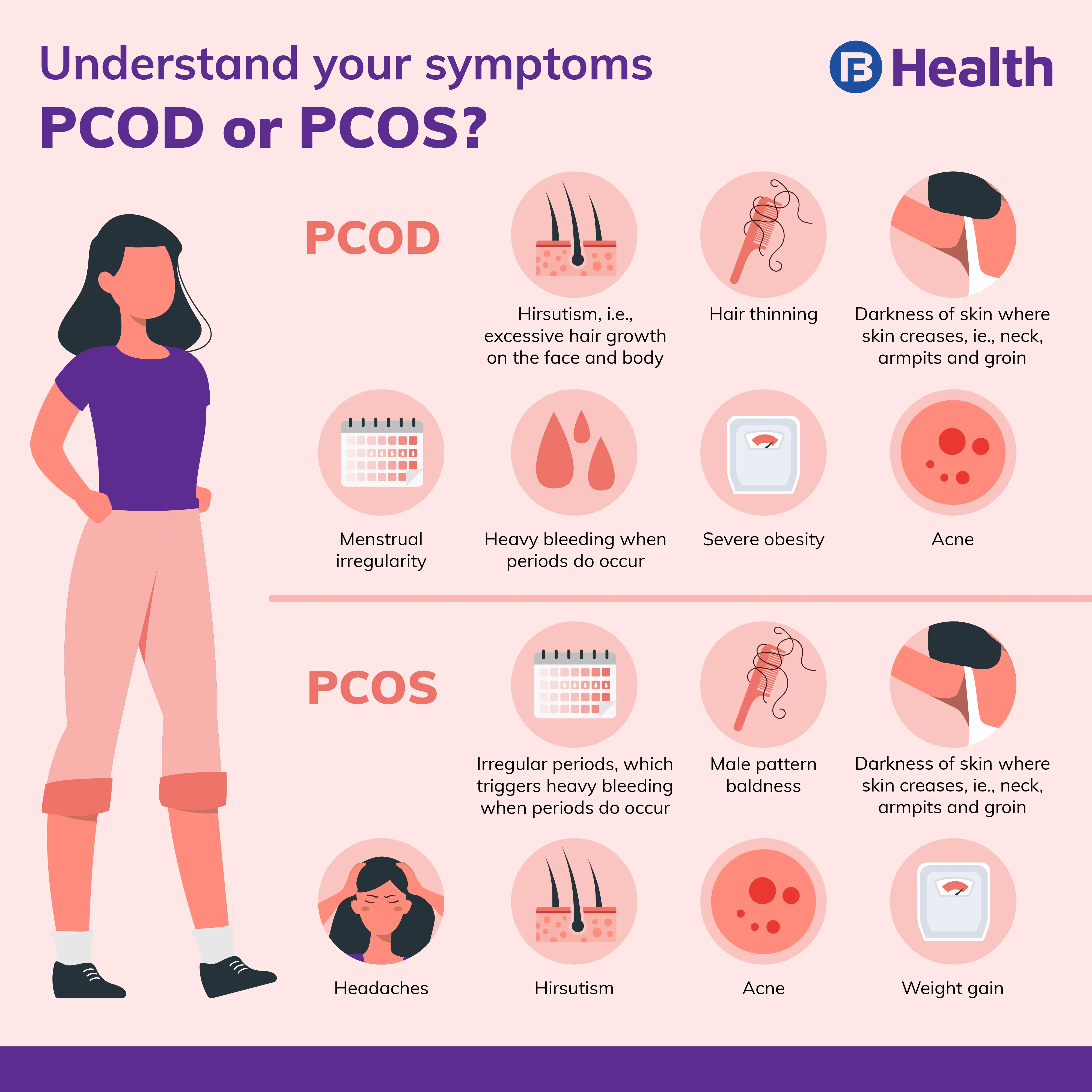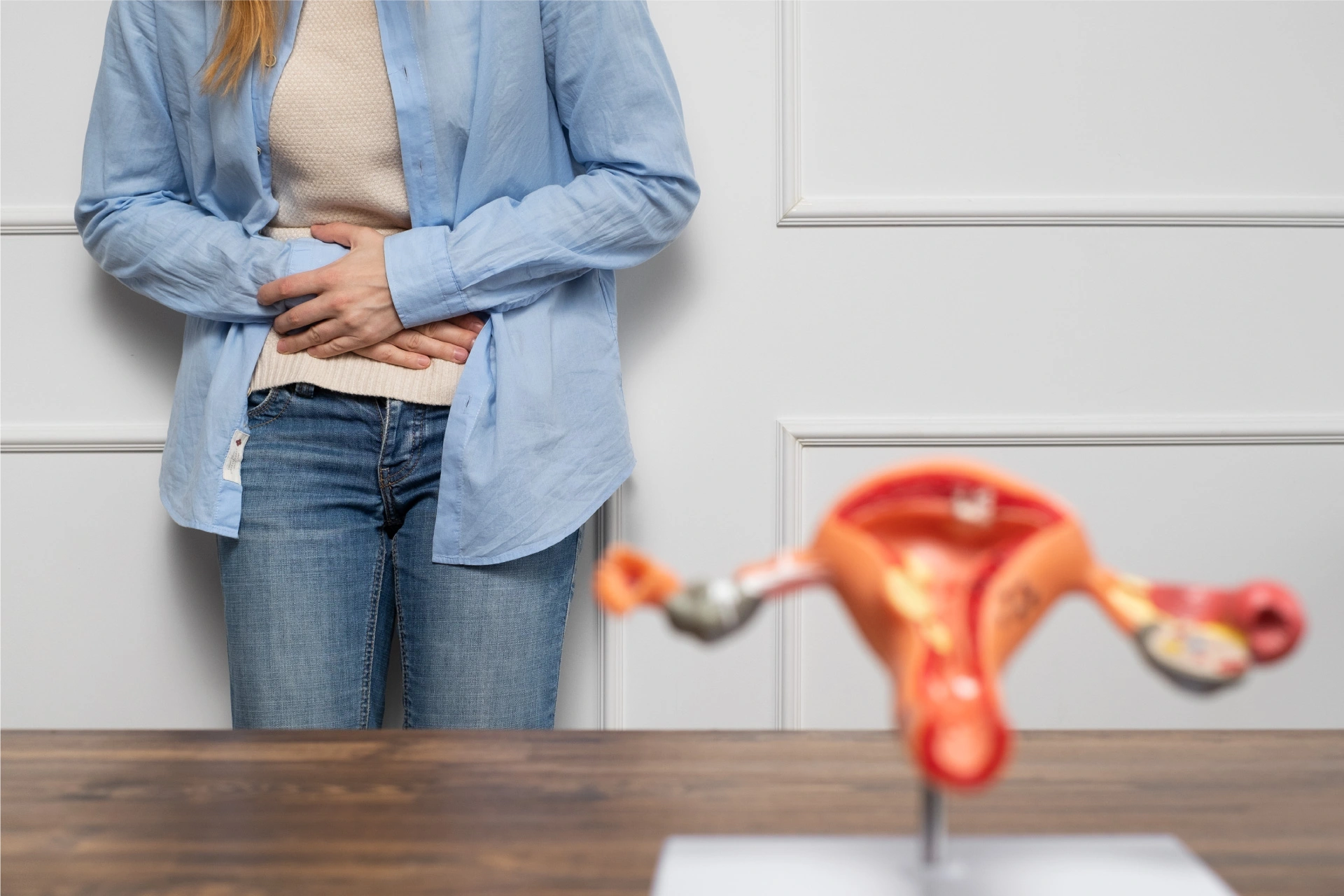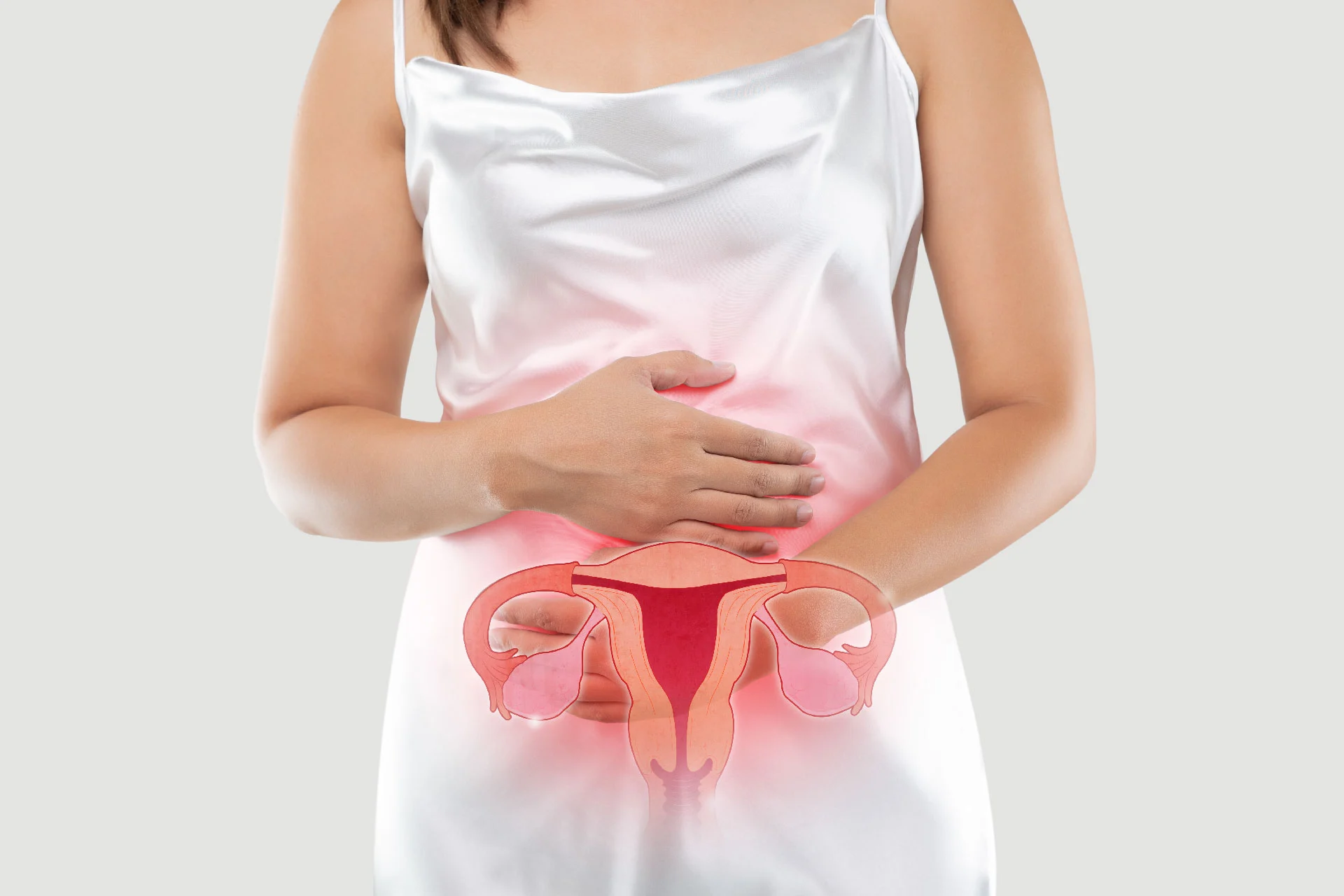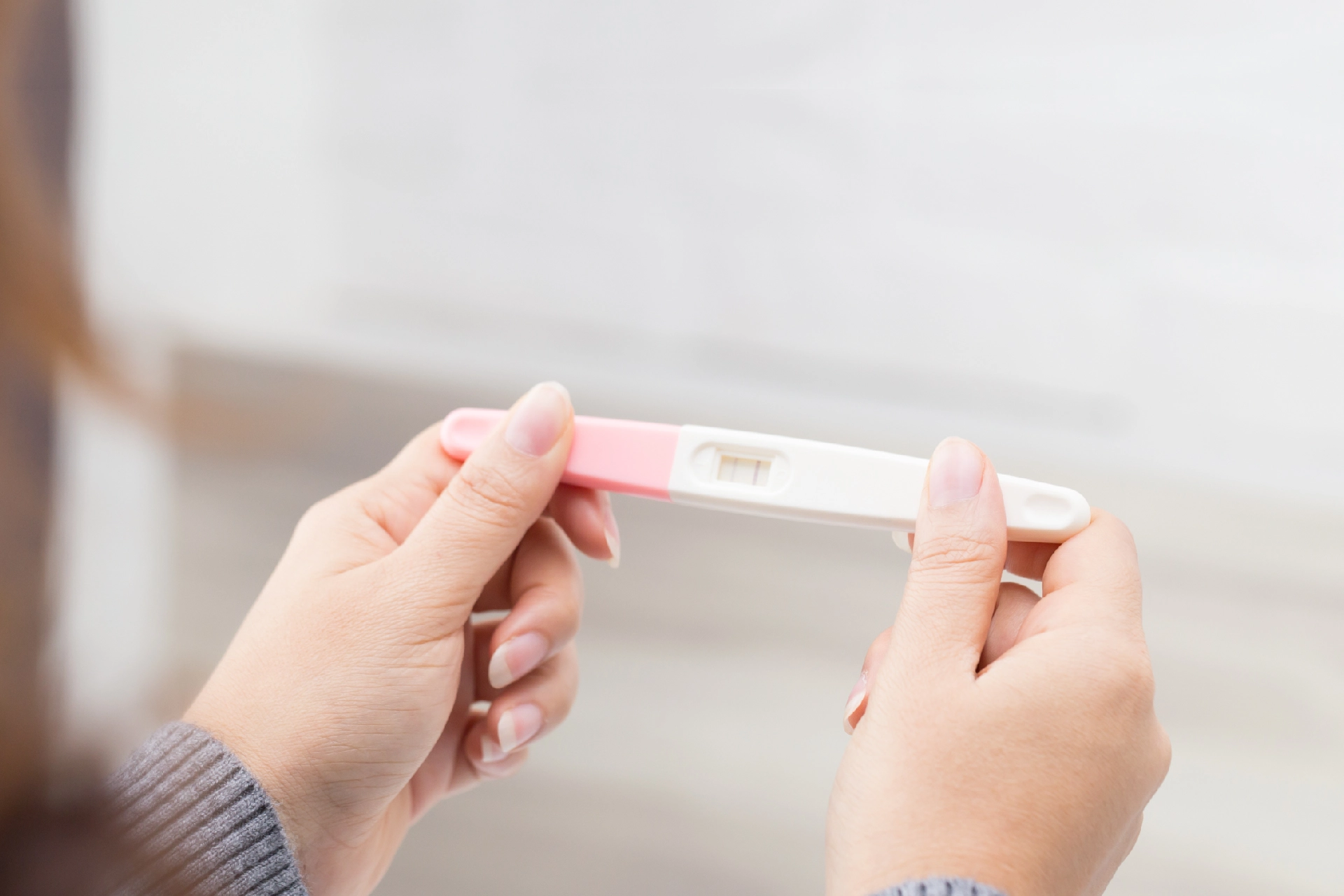Gynaecologist and Obstetrician | 7 min read
PCOD vs PCOS: Difference, Symptoms, Causes, Treatment
Medically reviewed by
Table of Content
Key Takeaways
- PCOD vs PCOS: What are the key differences?
- Understand what is the one your body is going through
- Diet and exercise to manage PCOD and PCOS
PCOD and PCOS are same or different? This is a question that befuddles many. Simply put, they aren’t the same thing. PCOD or Poly Cystic Ovarian Disease and PCOS or Poly Cystic Ovarian Syndrome both concern a woman’s ovaries, have similar symptoms, and culminate in hormonal fluctuations, but that’s where the similarities end. Read on to find out how the PCOD vs PCOS two conditions differ, their symptoms and more.
PCOD Vs PCOS Difference
What is PCOD?
PCOD is a condition that affects 1 in 8 women in India, and is caused by a hormonal imbalance in the reproductive system. An excessive secretion of the male hormone impacts the ovaries, resulting in a build-up of immature (or partially mature) eggs that aren’t released. Over a period of time, these turn into cysts, and the cysts multiply into more cysts, further worsening the problem. This condition usually arises owing to genetics as well as lifestyle and environmental factors, such as exposure to substances like bisphenol A.
What is PCOS?
PCOS, on the other hand, is a disorder concerning the endocrine system that can be traced back to the early 1700s. In those affected by PCOS—20% of all Indian women—the body produces a higher level of androgen (male hormone). This hampers egg development in the ovaries as well as their release, and can result in the formation of cysts. Along with genetics, insulin-resistance and inflammation in the body are considered to be causes for PCOS.
In the event that a woman’s body can’t utilise insulin optimally, there is excess insulin in the body. This prompts a greater production of the male hormone. Similarly, when your body faces inflammation, it may urge ovaries to up the production of androgen.
Additional Read: PCOS hair loss
Differences Between PCOD vs PCOS
Wondering how PCOD is different from PCOS? The table below can help you understand the differences better.
| PCOD | PCOS |
| This condition occurs commonly in women in India and around the globe | This condition is less prevalent in comparison |
| It rarely interferes with fertility | It causes fertility problems |
| Women can get pregnant without many hassles, taking certain medical aid if required | Women may find it harder to get pregnant due to irregular ovulation; it may also cause difficulties such as preterm birth or miscarriage |
| PCOD symptoms are mild and can be reversed with diet management and lifestyle modifications | PCOS symptoms require infertility treatments |
| It does not result in severe health problems or consequences | It may lead to health ailments like heart diseases, diabetes, high BP, excessive weight gain and certain cancers, so getting medical advice at the right time is necessary |
| PCOD symptoms are noticed less and appear at a later phase in life | PCOS symptoms appear at an early age due to metabolic problems |
| PCOD symptoms are easier to manage with certain modifications in lifestyle habits and meal plans; medicines can also help in managing these symptoms | PCOS symptoms require constant monitoring along with health treatments to prevent complications from worsening |
When it comes to PCOD vs PCOS, the latter is considered to be much more severe and long-lasting by medical experts as it is a metabolic disorder. PCOD, on the other hand, is deemed temporary and treatable with a combination of diet and exercise. Both, however, can contribute to fertility problems. Now that you know the answer to the question, ‘how is PCOD different from PCOS?’, be aware of the PCOD vs PCOS symptoms and seek medical attention without delay.
PCOD vs PCOS Symptoms
When it comes to PCOD vs PCOS symptoms, there are a many overlaps. However, the key differentiator is that PCOD symptoms rarely show up at an early age. They are typically visible only later in life. On the other hand, PCOS symptoms show up early, usually during teenage years. This is especially true for symptoms such as acne, hirsutism and an increase in weight.
PCOD Symptoms
- Hirsutism, i.e., excessive hair growth on the face and body
- Acne
- Darkness of skin where the skin creases, such as the neck, armpits and groin
- Hair thinning
- Menstrual irregularity: oligomenorrhea (less than 9 menstrual periods in a year) and amenorrhea (absence of menstrual periods for 3 or more months, successively)
- Heavy bleeding when periods do occur
- Severe obesity
PCOS Symptoms
- Irregular periods, which triggers heavy bleeding when periods do occur
- Male pattern baldness
- Acne
- Headaches
- Hirsutism
- Darkness of skin where the skin creases, such as the neck, armpits and groin
- Weight gain
As you can see, PCOD vs PCOS symptoms are more or less the same. However, their intensity, or the way in which they present themselves varies. For instance, weight gain is common to both, but is more severe in PCOD than it is in PCOS.
PCOD vs PCOS Causes
Now that you have the answer to the common query of how PCOD is different from PCOS look at some of their causes.
- Surplus production of insulin hormones may increase the number of androgens or male hormones in your body.
- Increased androgen production may cause PCOS symptoms such as excess facial and body hair growth.
- Genetic factors can result in PCOS.
- The presence of inflammatory bodies may cause PCOS.
- Environmental causes like pollution as well as leading an inactive life, and eating a high-fat diet with too much processed food is believed to lead to PCOD.
- Certain medications that affect hormones can also lead to PCOD.
Though the exact cause of PCOD and PCOS remains unknown, the above factors may contribute to these conditions. It is advisable to undergo blood tests to check if there’s an increased level of male hormones.
Treatment for PCOD and PCOS
While PCOD and PCOS vary in several aspects, one of the similarities is that they both benefit from a good diet and exercise. This is because diet and exercise help manage obesity, which is a symptom of PCOS and PCOD.
Exercising for PCOD and PCOS
PCOS and PCOD may result in other illnesses such as diabetes, heart disease, sleep apnoea and high cholesterol, but moderate exercise goes a long way in preventing these outcomes. Apart from reducing weight and abdominal fat, exercising helps lower and even mitigate insulin resistance, which is one of the main causes of PCOS. There are many benefits of yoga for PCOS.
While there is no particular form of exercise that’s best, aerobic exercises, HIIT workouts and strength training are all beneficial options that you can consider. Additionally, forms of exercise that also combat stress are ideal, as studies show that women diagnosed with PCOS have an elevated stress response. This makes yoga and Pilates excellent options to choose from.
Diet for PCOD and PCOS
There is a direct link between obesity and PCOD and PCOS, and one of the ways to manage it is through diet. In turn, weight loss helps regulate irregular menstrual cycles. Moreover, diet also encourages lowering of insulin resistance.
Additional Read: PCOD DietIn a nutshell, you must focus on incorporating fibre, lean proteins and anti-inflammatory foods into your diet, and avoid simple carbohydrates (Eg: white rice, bread and pasta), processed foods, sugar and trans fats. Eat high-fibre produce such as broccoli, pumpkin, beans, sweet potatoes and lentils, along with healthy fats such as olive oil, avocados and nuts. For anti-inflammation benefits, increase your intake of leafy greens such as spinach, along with salmon/tuna, kale, tomatoes, olive oil and walnuts.
Apart from monitoring what you eat, also pay attention to how you eat. Since many PCOD patients also have water retention, it’s best to eat multiple small meals through the day and drink plenty of water too.
Conclusion
While you may have some of the symptoms of PCOD vs PCOS, don’t self-diagnose or self-medicate. The best way forward is to approach a specialist doctor who will diagnose you after checking for cysts, high androgen levels and a pelvic exam. Fortunately, finding the right gynaecologist is easy when you use the Bajaj Finserv Health App. You can book online consultation or in-person consults through it, and also benefit from discounts and offers from partner hospitals and clinics. Download the free app onto your smartphone in minutes, and find a specialist doctor for your needs just as quickly!
References
- https://www.ncbi.nlm.nih.gov/pmc/articles/PMC3553224/
- https://www.ingentaconnect.com/contentone/ben/cpd/2016/00000022/00000036/art00011
- https://www.ncbi.nlm.nih.gov/pmc/articles/PMC4625541/#:~:text=While%20moderate%20intensity%20exercise%20may,effective%20in%20mitigating%20insulin%20resistance.
Disclaimer
Please note that this article is solely meant for informational purposes and Bajaj Finserv Health Limited (“BFHL”) does not shoulder any responsibility of the views/advice/information expressed/given by the writer/reviewer/originator. This article should not be considered as a substitute for any medical advice, diagnosis or treatment. Always consult with your trusted physician/qualified healthcare professional to evaluate your medical condition. The above article has been reviewed by a qualified doctor and BFHL is not responsible for any damages for any information or services provided by any third party.





